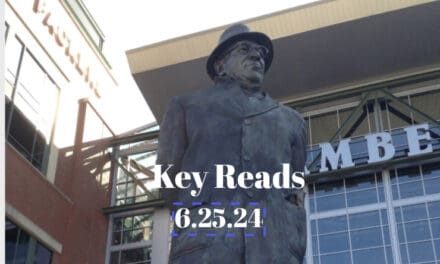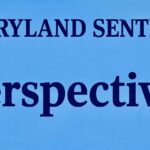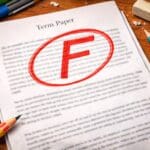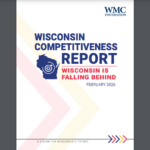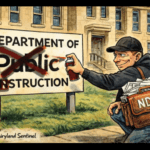While technically Summer doesn’t begin until later this week, summertime has hit Southern Wisconsin. Today will be the hottest day of the heatwave, which could bring with it sporadic severe storms. Welcome to Monday, and the latest edition of our Key Reads. Let’s get right to it.
Lac du Flambeau road closures bring call from Gov. Tony Evers and Sen. Tammy Baldwin for quick resolution as residents seek solutions
That was the headline from more than one year ago when news of a land dispute in Northern Wisconsin heated up after a decade of disagreement over the legitimacy of titles granted to homeowners in the town of Lac du Flambeau. In January of 2023 , the Lac Du Flambeau Tribe set up four roadblocks across their reservation, cutting off access to properties owned by some 65 non-Native families in the Town.
As the headline above noted, Evers and Baldwin issued statements. Meanwhile, to leave and then return to their properties, some homeowners would ride snowmobiles through woods or across a frozen lake and then meet up with others to coordinate the next leg of the makeshift bypass.
Eventually a temporary agreement allowed the homeowners access to their properties.
But the dispute continues. It’s time, not for press statements, but for real leadership from Madison and especially Washington on this. The situation is clearly beyond the financial wherewithal of the township, which, after all, did not enter into a treaty to establish the reservation’s boundaries and spell out the rights granted under the sovereignty of the Tribe.
Tribe won’t accommodate lower payments to keep disputed roads open | WPR
The Lac Du Flambeau Band of Lake Superior Chippewa Indians said it will not accommodate a plan passed by the Town of Lac du Flambeau Board that would reduce monthly payments to the tribe to keep town roads on its reservation open.
In a letter to Town Chairman Matt Gaulke sent Friday, Tribe President John Johnson wrote that failure to comply with an agreement reached last year between the town and the tribe would “result in the Tribe taking necessary actions to protect lands and territory of the Tribe’s treaty defined Reservation.”
…The roads re-opened in March 2023, when the town made an initial $60,000 payment to the tribe. Since then, the two parties agreed to monthly payments from the town that increase by $2,000 each month to keep the roads open until new easement agreements can be reached.
At a meeting late last month, town supervisors voted to reduce their monthly payments starting in July, arguing that the municipality cannot afford to keep up with the ever-increasing fee.
In his letter Friday, Johnson suggested town officials request a meeting with the Tribal Council. He said the council is waiting on a “substantive” response to a Dec. 1 letter asking the town for $9.6 million in damages to renew the easements and keep the roads open permanently.
For weeks, we’ve been explaining that the dysfunction within Milwaukee’s public schools impact all of Wisconsin. By failing to prepare generation after generation of young people for the challenges of society, state and local budgets are strained due to increasing health, human services and courts and corrections budgets.
Every day we learn more and more about just how bad the scandal at MPS truly is. Late Friday, CBS58 reported that in March of this year, the State Department of Public Instruction and MPS were aware that the state had issued tens of millions of dollars in overpayments to MPS as the result of inaccurate and incomplete information shared by MPS with the state.
This means State Superintendent Jill Underly and MPS officials knew MPS books were cooked (and a scandal was about to be disclosed to the public) before voters went to the polls on a request for an annual quarter million dollars more spending. This reporting shows they purposefully withheld this information from the public, and then the referendum narrowly passed.
MPS officials knew about state aid reductions before referendum vote | CBS58
State education officials said Friday administrators for Milwaukee Public Schools (MPS) knew the district was facing a reduction in state aid as early as late March.
Those adjustments from the Department of Public Instruction (DPI), now estimated to be somewhere between $35 million and $50 million, will make up for overpayments MPS previously received as a result of bad data it provided the state.
Chris Bucher, a DPI spokesperson, told CBS 58 Friday the state first became aware in late March MPS may have submitted incorrect data that led to the state giving more money than it should have.
On April 2, Milwaukee voters narrowly approved a $252 million referendum for the district.
Friday’s release is the first public confirmation at least some officials at the highest levels of MPS knew they were facing a state aid reduction because of past mistakes, but voters were never informed of that before the April vote.
That referendum, which passed as voters in Milwaukee were kept int the dark, is going to impact school budgets across the state. As the Badger Institute explains…
Milwaukee Public Schools’ referendum will sap aid from other Wisconsin districts| Badger Institute
Passage of the controversial $252 million Milwaukee Public Schools referendum means hundreds of other districts statewide will get less aid.
Madison, Waukesha and Racine school districts could lose $2 million or more in one year, Appleton and West Bend between $1 million and $2 million, and New Berlin, Fond du Lac, Green Bay and Mukwonago at least $760,000, according to calculations made by the Legislative Fiscal Bureau.
“The impact is huge,” state Sen. Van Wanggaard, R-Racine, who asked the LFB for the estimates, said. “This was a wakeup call for me on the impact of these big referendums on state aid. Huge.”
…In the weeks leading up to the election, Wanggaard said discussions with other lawmakers prompted him to ask the Legislative Fiscal Bureau to calculate the impact of the district that is by far the largest in the state getting that kind of financial windfall based on the tiered equalization aid formula in place since 1995.
In theory, the formula ought to equalize the tax base statewide, according to the LFB report. “In pure form, this means that a school district’s property tax rate does not depend on the property tax base of the district, but rather on the level of expenditures,” according to the report. “Districts with low per pupil property valuations receive a larger share of their costs through the formula than districts with high per pupil property valuations.”
It is a formula, however, that the Legislature has sidestepped for more than a decade as the financial straits narrowed for the Milwaukee Public Schools, Dale Kooyenga, who served in the Assembly and Senate during that period, told the Badger Institute.
Kooyenga, now president of the Metropolitan Milwaukee Association of Commerce, said the Legislature got around the formula by adding funding to “per-pupil categorical aid.”
“This aid simply gave school districts more money per child regardless of property tax base or other factors,” Kooyenga said.
The exact extent of the loss of aid in coming years cannot be calculated exactly, but the Legislative Fiscal Bureau has come up with close approximations based on finances in a prior year.
The Legislative Fiscal Bureau did its calculating based on the $5.34 billion of state aid appropriated in the 2022-23 school year. Had MPS added $140 million in revenue in that year (as the district has said it plans to do in the 2024-25 school year while gradually phasing in the full $252 million approved by voters) MPS would have received $48.8 million more in state aid the school year following the referendum year, according to the report.
In the LFB’s calculations, Milwaukee’s aid increase sets off a redistribution of $87.9 million, leaving 357 of the state’s 421 districts with less aid than they normally would have gotten, the report said.
It would then be up to people in those districts to make up for those losses through property tax increases.
We’ve made no secret about our love of the Wisconsin State Fair. But we are skeptical of this latest move. Why mess with tradition? Why mess with perfection?
Wisconsin State Fair makes change to iconic cream puffs for first time in its history | NBC Chicago
For the first time in Wisconsin State Fair history, a change is being made to the fair’s iconic Cream Puff.
In celebration of the puff’s 100th anniversary, officials revealed this week that the August event in West Allis will debut four new flavors, marking the first time flavored Cream Puffs have ever been offered at the fair itself.
…Each flavor will only be available for a few days at a time. The schedule is as follows:
- August 1 – 3: Root Beer Float
- August 4 – 6: Raspberry Cheesecake
- August 7 -9: English Toffee
- August 10: Chocolate Birthday Cake
You don’t tug on Superman’s cape.
You don’t spit into the wind.
You don’t pull the mask off that old Lone Ranger and you don’t mess around with the State Fair Cream Puffs.
I’m sure we’ll get over it after some food on a stick and a ride down the big slide, but still…
In any event, we’ll be back with more Key Reads tomorrow.
In the interim, check out the main site for additional news and features.




